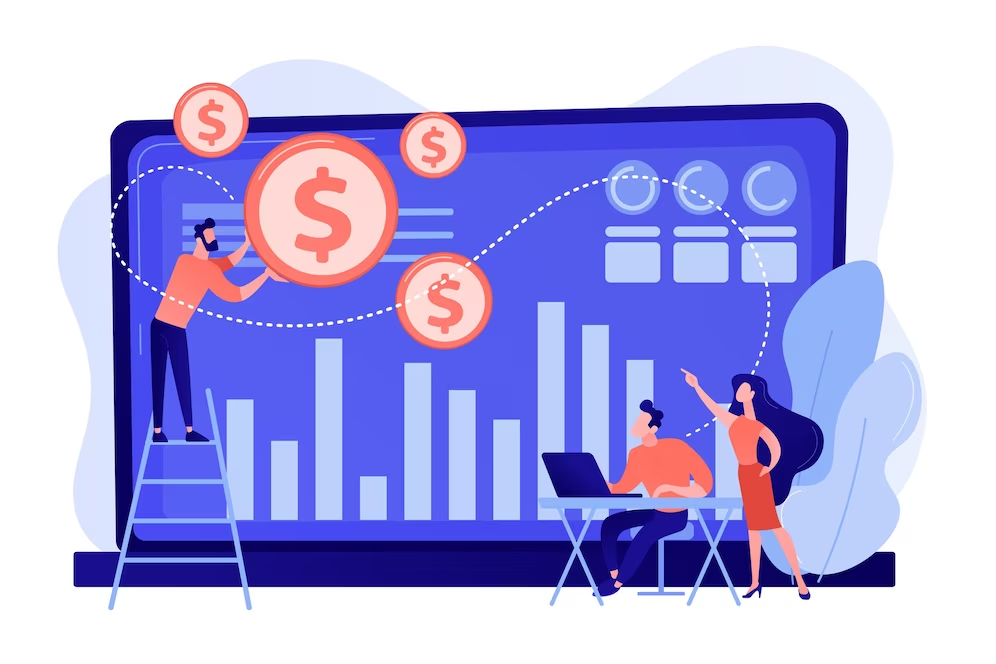Liquidity Mining in DEX: How It Works and Its Benefits

Introduction
Liquidity mining, also known as yield farming, is a concept that has gained significant popularity in the Decentralized Exchanges (DEX). It offers participants an innovative way to earn rewards while contributing liquidity to various exchange protocols. In traditional finance, liquidity refers to the availability of assets or funds that can be easily bought or sold without causing significant price fluctuations.
In DEX, liquidity is essential for the smooth functioning of decentralized exchanges (DEXs), lending platforms, and other protocols. Liquidity mining leverages this need for liquidity by incentivizing users to provide their assets to these protocols. The process of liquidity mining involves participants depositing their assets, typically in the form of cryptocurrency, into liquidity pools within the DEX platform. These liquidity pools enable users to trade, lend, or borrow digital assets on the protocol. By supplying their assets to these pools, participants become liquidity providers and contribute to the overall liquidity of the platform.
The rewards earned through liquidity mining can vary significantly based on factors such as the duration of liquidity provision, the specific protocol, and market conditions. Participants have the potential to generate passive income by earning rewards on top of the initial investment made by providing liquidity.
In this blog, we will explore the world of liquidity mining in DEX, exploring how it works and highlighting its numerous benefits. So, if you're curious about this exciting trend and want to understand its potential, keep reading! Especially if you are looking for decentralized exchange development services.
Understanding Liquidity Mining
What is Liquidity Mining?
The primary purpose of liquidity mining is to enhance the liquidity and functionality of decentralized exchange platforms. Liquidity refers to the availability of funds or assets that can be easily bought or sold on an exchange without causing significant price movements. In the context of DEX, liquidity is crucial for enabling efficient trading.
When users participate in liquidity mining, they contribute their funds to liquidity pools. Liquidity pools are smart contracts that hold and manage assets provided by liquidity providers (LPs). These pools typically consist of two or more tokens and enable users to trade between them. By depositing their funds into a liquidity pool, LPs help to increase the depth of the market, making it easier for traders to execute trades without significant slippage. The tokens provided by LPs are used to facilitate trades, lending, or other activities within the protocol.
Liquidity mining has become popular due to its ability to incentivize users to contribute liquidity, thereby increasing the efficiency and utility of DEX protocols. It encourages participation, enhances trading opportunities, and attracts more users to the ecosystem.
How Does Liquidity Mining Work?
The several steps involved in Liquidity Mining are:
- Identify the DEX Platform: The first step is to identify a suitable decentralized exchange (DEX) platform where you want to participate in liquidity mining. There are various decentralized exchange platforms available, each offering different opportunities and rewards.
- Select a Decentralized Exchange: Once you have chosen a decentralized exchange platform where you want to provide liquidity. Consider factors such as the popularity, liquidity, and potential rewards of the chosen exchange.
- Deposit Funds into the Liquidity Pool: After selecting the DEX, you will need to deposit your funds into the liquidity pool. Liquidity pools typically consist of two assets, such as Ethereum (ETH) and a specific token. The amount you deposit will determine your share of the liquidity pool.
- Receive Liquidity Pool Tokens: As you deposit funds into the liquidity pool, you will receive liquidity pool tokens, often referred to as LP tokens. These tokens represent your ownership or share in the liquidity pool. The number of LP tokens you receive is proportional to the amount of funds you contribute to the pool.
- Earn Additional Rewards: By holding onto your LP tokens, you become eligible to earn additional rewards offered by the decentralized exchange platform. These rewards are usually in the form of the protocol's native tokens or a portion of the transaction fees generated by the platform. The specific reward mechanism and distribution will depend on the protocol you are participating in.
- Redemption and Flexibility: You have the option to redeem your deposited funds at any time by using your LP tokens. This allows you to exit the liquidity pool and access your original assets. However, many liquidity providers choose to keep their funds in the pool to continue earning rewards and maintain their share in the liquidity pool.

Benefits of Liquidity Mining-
Liquidity mining offers several benefits for participants in the decentralized exchange ecosystem. Let's explore some of the key advantages:
- Earning Passive Income: Liquidity mining allows individuals to earn passive income by simply providing liquidity to the Centralized Exchange. Instead of leaving their funds in their wallet, users can put their assets to work and generate returns over time
- Token Rewards: By participating in liquidity mining, users often receive rewards in the form of tokens. These tokens can have significant value if the protocol's native token appreciates in the market. Additionally, receiving tokens from promising projects at an early stage can offer substantial long-term benefits.
- Enhancing Portfolio Diversification: Liquidity mining enables participants to diversify their cryptocurrency holdings. By providing liquidity to multiple protocols, users can gain exposure to different tokens and projects, reducing their risk and increasing their potential for profit.
- Supporting DEX Ecosystem: Liquidity mining plays a vital role in supporting the growth and sustainability of the DEX ecosystem. By providing liquidity, users contribute to the overall liquidity pool, which enhances trading volume and reduces slippage for other traders. This, in turn, attracts more participants and fosters a healthy and vibrant DEX environment.
- Participation in Early-Stage Projects: Liquidity mining often offers the opportunity to engage with promising early-stage projects. By participating in their liquidity pools, users can access new tokens and potentially benefit from their future success.
- Flexible Withdrawals: Unlike traditional financial systems, liquidity mining allows users to withdraw their funds at any time. This flexibility ensures that participants have control over their assets and can manage their liquidity as per their preferences.

How to Start Liquidity Mining
Choosing a Suitable Platform: To start liquidity mining, it's crucial to choose a protocol that aligns with your investment goals and risk appetite. Conduct thorough research on the protocol's background, tokenomics, and potential for growth. Platforms like CoinMarketCap and CoinGecko provide comprehensive information and rankings of different DEX platforms.
Setting up a Wallet: Once you've selected a platform, the next step is to set up a compatible wallet. Wallets like MetaMask and Trust Wallet are popular choices that support a wide range of DEX platforms. Ensure that your wallet is securely backed up and adequately funded with the assets you plan to deposit into the liquidity pool.
Depositing Funds: After setting up your wallet, you can proceed to deposit funds into the liquidity pool of your chosen protocol. Follow the instructions provided by the platform, and be cautious when interacting with smart contracts to avoid any potential scams or vulnerabilities.
Monitoring and Managing Rewards: Once you've deposited your funds and started liquidity mining, it's essential to monitor your rewards and manage your liquidity pool effectively. Keep track of the performance of the protocol, the value of the rewards you're earning, and any changes in the market conditions.

FAQs about Liquidity Mining in DEX
Q: Is liquidity mining risky?
A: Like any investment activity, liquidity mining carries inherent risks. The value of the tokens you earn can fluctuate, and there's always a chance of impermanent loss. It's crucial to understand the risks involved and only invest what you can afford to lose.
RWaltz, a leading DEX development company, can provide you with expert guidance on risk management and help you navigate the challenges associated with liquidity mining.
Q: Are there any fees associated with liquidity mining?
A: While the fees can vary depending on the protocol, most platforms charge transaction fees when depositing or withdrawing funds. Additionally, there might be gas fees associated with interacting with the Ethereum network.
Q: Can I withdraw my funds anytime during the liquidity mining process?
A: Yes, in most cases, you can withdraw your funds at any time by redeeming your liquidity pool tokens. However, it's important to consider any potential penalties or time-lock restrictions that the protocol may have in place.
Q: How do I calculate my potential returns from liquidity mining?
A: The potential returns from liquidity mining depend on several factors, including the size of your liquidity provision, the protocol's token rewards, and the market conditions. Some platforms provide calculators that can help estimate your earnings.
Q: Are there any tax implications for liquidity mining?
A: Tax regulations vary across jurisdictions, and it's essential to consult with a tax professional to understand the tax implications of liquidity mining in your specific location.
Q: Can I do liquidity mining with any cryptocurrency?
A: The availability of liquidity mining options depends on the protocol. While Ethereum-based platforms are currently the most popular, there are liquidity mining opportunities for various cryptocurrencies.
Conclusion
Liquidity mining in DEX presents an exciting opportunity for individuals to earn rewards while actively participating in the growth of the decentralized exchange ecosystem. By providing liquidity to protocols, users can not only earn passive income but also support the overall liquidity and efficiency of the market. However, it's crucial to conduct thorough research, assess the risks, and choose reputable protocols before engaging in liquidity mining activities. Remember to stay informed, diversify your investments, and always exercise caution in the rapidly evolving world of DEX.
Ready to dive into the world of decentralized exchange? RWaltz is your go-to partner for DEX development. Our experienced team can help you build cutting-edge DEX solutions that revolutionize the way financial transactions are conducted. With our decentralized exchange development services, you can leverage innovative features to maximize your potential in the DEX ecosystem. Get in touch with us today and let's discuss how we can bring your DEX vision to life.
Recent Blogs
- CRM Revolutionizing the Banking Experience
- Unlocking Success: Practical Approaches to Effective IT Strategy and Planning
- How AI is Revolutionizing Manufacturing Efficiency in 2024
- Nine Ethereum Future ETFs Go Live in the US
- Mastercard Makes Music with NFTs
- Best Time to Launch a Crypto Token: 2024
- An Introduction to Tokens and Why They Matter
- The Future of NFTs: Will Bored Apes Still Reign Supreme in 2024?
- Driving Sustainability Through Waste Management Token Development
- The Explosive Growth of NFTs: Adoption Trends Among USA Crypto Users
Categories
Latest news, articles, and updates montly delivered to your inbox.






